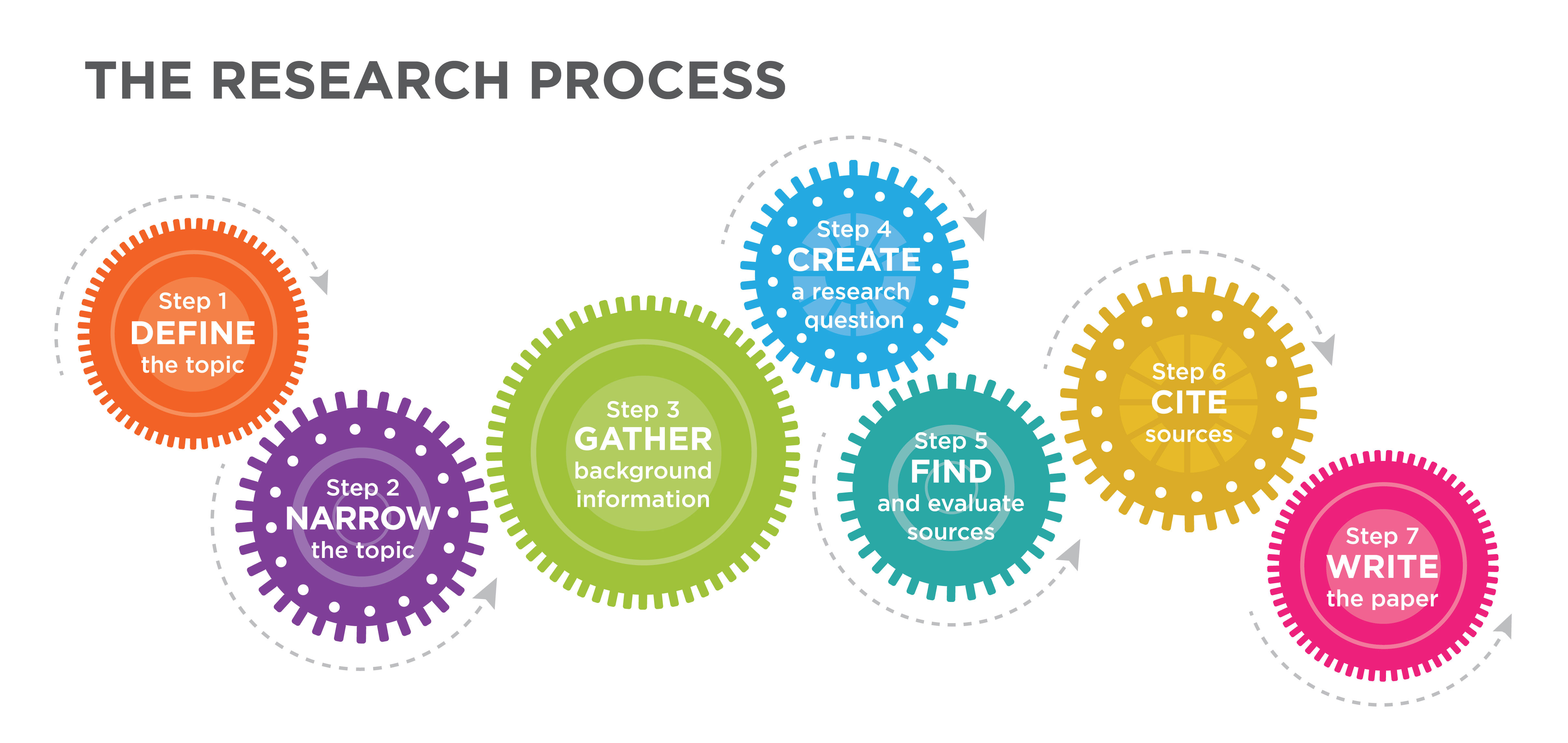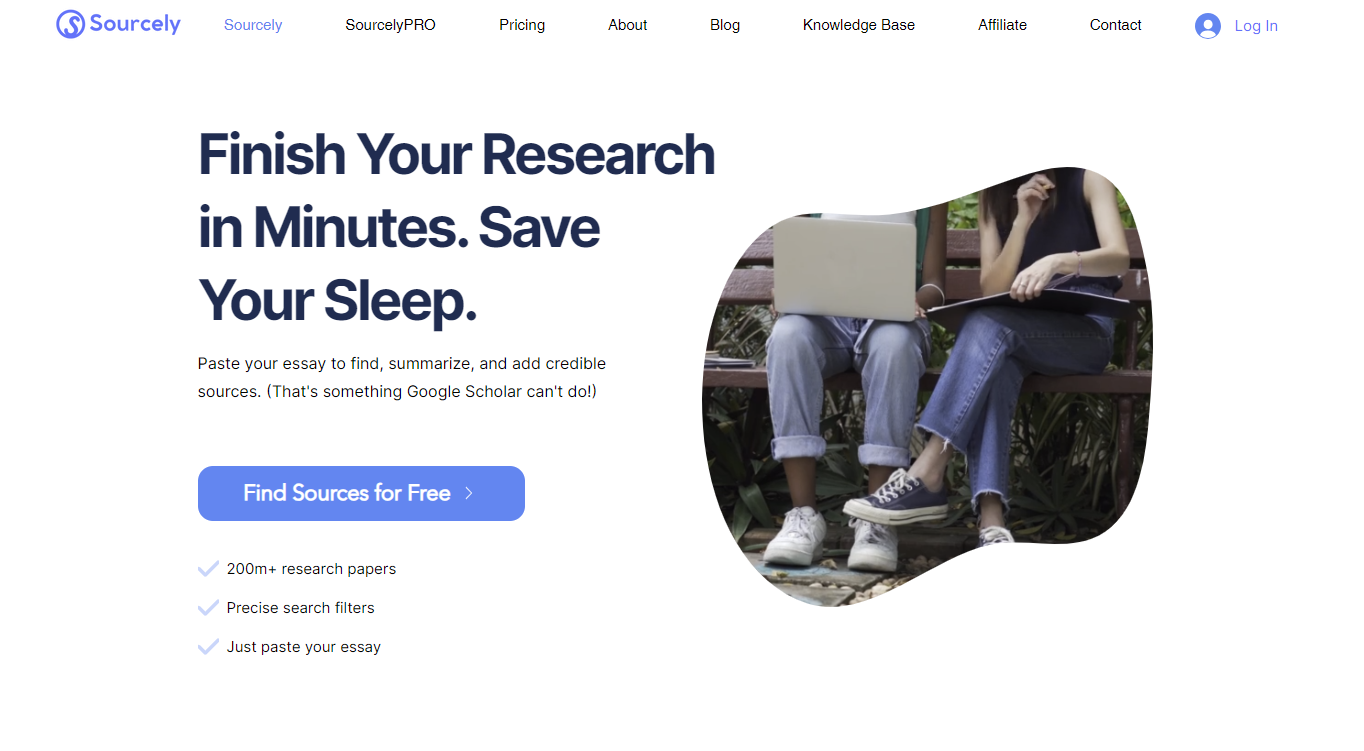Academic research is like the backbone of progress in all academic areas. It's where students and scholars can dive into new territories, come up with cool ideas, and make a real impact in their fields. It's not just about collecting data - it's about carefully looking at what's already out there and finding fresh new angles.
 Even though academic research has a lot of great perks, one big hurdle for researchers is finding the right materials. There's so much info out there on the internet and in libraries that it can be super overwhelming and confusing. This leaves researchers not knowing where to even start their search.
When researchers have a ton of resources to work with, they might feel a bit overwhelmed about where to start looking. This can make them unsure and indecisive. So, it's super important for them to carefully choose and pick the right materials for their academic research. They need to plan strategically and think things through to make sure they're using the best and most trustworthy sources. By getting good at finding materials and improving their research skills, researchers can tackle this challenge and make their academic studies even better.
This article will provide you with some tips on how to find the right sources for your academic research. We'll chat about figuring out your research topic, making the most of search engines, and checking if your sources are top-notch.
Even though academic research has a lot of great perks, one big hurdle for researchers is finding the right materials. There's so much info out there on the internet and in libraries that it can be super overwhelming and confusing. This leaves researchers not knowing where to even start their search.
When researchers have a ton of resources to work with, they might feel a bit overwhelmed about where to start looking. This can make them unsure and indecisive. So, it's super important for them to carefully choose and pick the right materials for their academic research. They need to plan strategically and think things through to make sure they're using the best and most trustworthy sources. By getting good at finding materials and improving their research skills, researchers can tackle this challenge and make their academic studies even better.
This article will provide you with some tips on how to find the right sources for your academic research. We'll chat about figuring out your research topic, making the most of search engines, and checking if your sources are top-notch.
Step 1: Pick Your Research Topic!
 So, when you start your research journey, the first thing to do is pick a topic that grabs your attention and fits your goals. It might sound easy, but the trick is to be super specific with your choice. Instead of going for something broad like "artificial intelligence," why not explore "how artificial intelligence is used in healthcare." By narrowing down your focus, you set the stage for a deeper dive and analysis.
Once you've got your research topic nailed down, the next big step is to brainstorm some keywords and phrases that are on point. These will be like your trusty compass guiding you to all the good stuff out there. Putting together a solid list of keywords makes sure your searches are right on target, saving you time and getting you to the heart of the matter. So, let's get exploring armed with these essential tools and uncover all the cool stuff waiting to be found!
So, when you start your research journey, the first thing to do is pick a topic that grabs your attention and fits your goals. It might sound easy, but the trick is to be super specific with your choice. Instead of going for something broad like "artificial intelligence," why not explore "how artificial intelligence is used in healthcare." By narrowing down your focus, you set the stage for a deeper dive and analysis.
Once you've got your research topic nailed down, the next big step is to brainstorm some keywords and phrases that are on point. These will be like your trusty compass guiding you to all the good stuff out there. Putting together a solid list of keywords makes sure your searches are right on target, saving you time and getting you to the heart of the matter. So, let's get exploring armed with these essential tools and uncover all the cool stuff waiting to be found!
Step 2: Getting the Most out of Search Engines
 So, when you want to utilize those search engines, you've got tons of choices. Sure, Google, Bing, and Yahoo! are big shots, but there are plenty more out there that cater to all sorts of needs and tastes.
A big part of making the most of search engines is picking the right keywords and phrases. Choose those terms wisely, and you'll get search results that really match what you're looking for. This focused approach not only saves time but also helps you find the best sources for your research or info needs.
And hey, if you want to get super precise with your searches, try using some fancy search tricks. These cool commands let you tweak your searches and ditch all the stuff you don't need. For example, throw in the "site:edu" trick, and you'll only search educational sites, which are usually top-notch for reliable info.
By getting the hang of using search engines like a pro, you'll speed up your online research, uncover awesome resources, and nail down the info you're after with way more efficiency and accuracy. Go you!
So, when you want to utilize those search engines, you've got tons of choices. Sure, Google, Bing, and Yahoo! are big shots, but there are plenty more out there that cater to all sorts of needs and tastes.
A big part of making the most of search engines is picking the right keywords and phrases. Choose those terms wisely, and you'll get search results that really match what you're looking for. This focused approach not only saves time but also helps you find the best sources for your research or info needs.
And hey, if you want to get super precise with your searches, try using some fancy search tricks. These cool commands let you tweak your searches and ditch all the stuff you don't need. For example, throw in the "site:edu" trick, and you'll only search educational sites, which are usually top-notch for reliable info.
By getting the hang of using search engines like a pro, you'll speed up your online research, uncover awesome resources, and nail down the info you're after with way more efficiency and accuracy. Go you!
Step 3: Checking Out the Quality of Sources
 So, when you start digging into research, the quality of the sources you use is super important for making sure your work is legit and reliable. Figuring out if a source is top-notch involves a few key things to think about:
So, when you start digging into research, the quality of the sources you use is super important for making sure your work is legit and reliable. Figuring out if a source is top-notch involves a few key things to think about:
- Expertise: First off, you need to look at who wrote it. A good source should be written by someone who really knows their stuff in that field, so you know you're getting solid info.
- Relevance: It's crucial that the source you're using relates closely to what you're researching. This way, you can pull out the most important insights and data for your work.
- Accuracy: The info in your source has to be spot on. Not only should it be correct, but it also needs to be up-to-date, showing the latest info and discoveries in the field.
- Objectivity: A trustworthy source needs to be fair and impartial. To keep things legit, sources should present info without any personal biases or hidden agendas.
4. Step 4: Use Sourcely AI
 When it comes to academic writing, we all know how much of a pain it can be to hunt down and organize all those sources for your papers. That's where Sourcely AI comes to the rescue. Sourcely is like your trusty sidekick that uses artificial intelligence to make finding, summarizing, and formatting your sources a breeze.
With Sourcely AI, say goodbye to endless hours of searching the web for scholarly articles and books related to your research topic. This nifty tool can automatically dig up sources that are spot-on for your field of study, saving you loads of time and hassle.
But wait, there's more! Sourcely can also whip up neat summaries of the articles and books it finds, making it super easy for you to grasp the main points and arguments in each source. This feature is a lifesaver when you're dealing with a mountain of references and need to quickly pull out the key info.
And guess what? Sourcely AI even takes care of formatting your sources according to different citation styles. Whether it's APA, MLA, or Chicago style, Sourcely has got your back when it comes to making sure your citations are consistent and accurate.
By bringing Sourcely AI into your academic routine, you can supercharge the efficiency and quality of your research game. This means more time for digging into and connecting the dots between information, and less time sweating the small stuff of source management.
When it comes to academic writing, we all know how much of a pain it can be to hunt down and organize all those sources for your papers. That's where Sourcely AI comes to the rescue. Sourcely is like your trusty sidekick that uses artificial intelligence to make finding, summarizing, and formatting your sources a breeze.
With Sourcely AI, say goodbye to endless hours of searching the web for scholarly articles and books related to your research topic. This nifty tool can automatically dig up sources that are spot-on for your field of study, saving you loads of time and hassle.
But wait, there's more! Sourcely can also whip up neat summaries of the articles and books it finds, making it super easy for you to grasp the main points and arguments in each source. This feature is a lifesaver when you're dealing with a mountain of references and need to quickly pull out the key info.
And guess what? Sourcely AI even takes care of formatting your sources according to different citation styles. Whether it's APA, MLA, or Chicago style, Sourcely has got your back when it comes to making sure your citations are consistent and accurate.
By bringing Sourcely AI into your academic routine, you can supercharge the efficiency and quality of your research game. This means more time for digging into and connecting the dots between information, and less time sweating the small stuff of source management.
